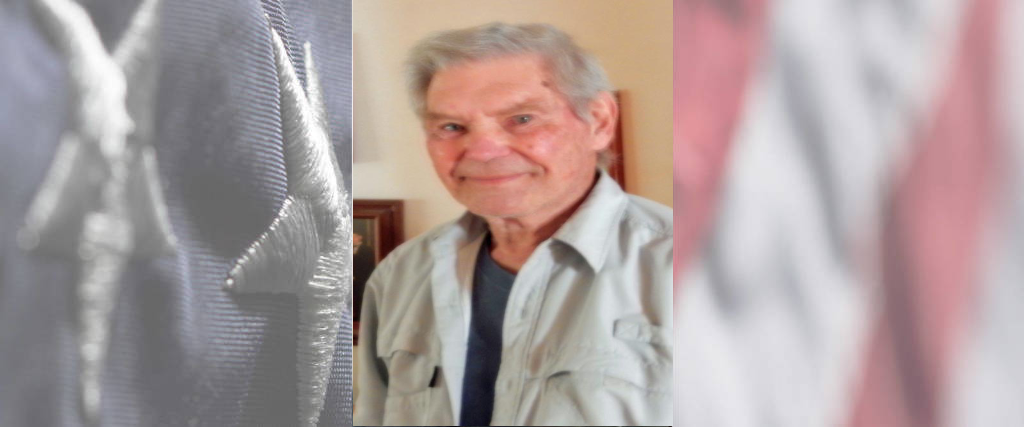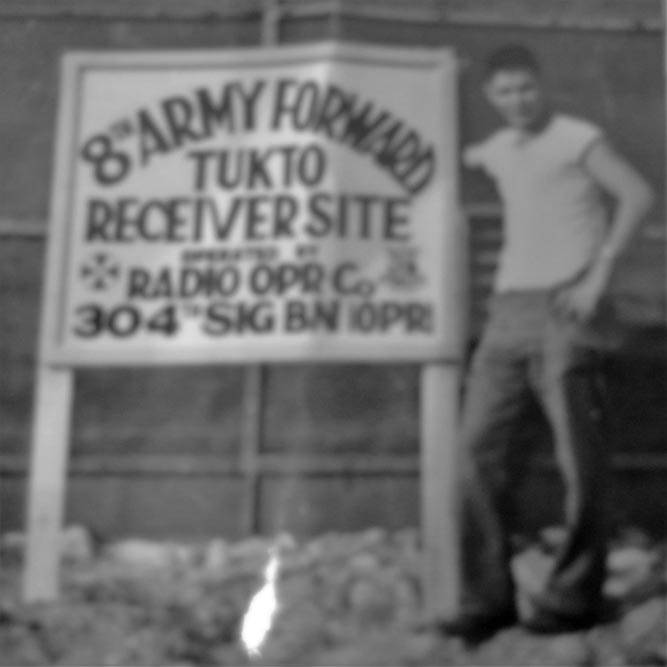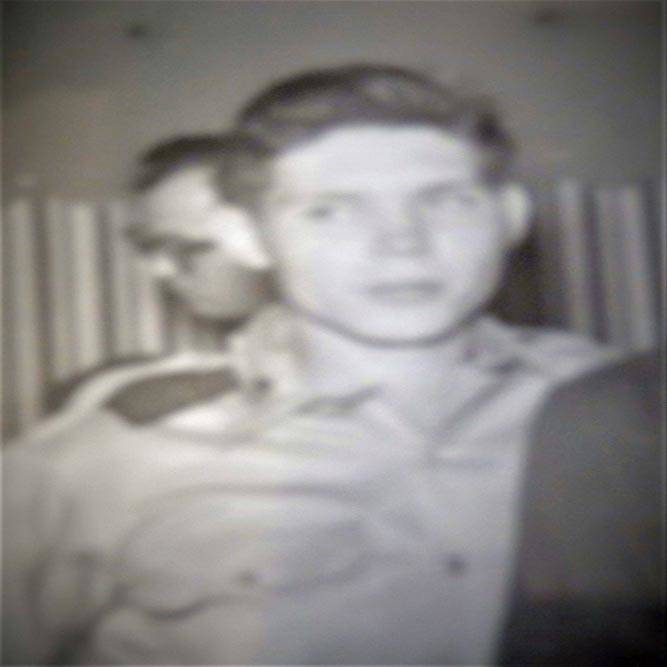U.S. Army Korean War Chicago, IL Flight date: 07/11/18
By Donna Pacanowski, Honor Flight Chicago Veteran Interviews Volunteer
Erwin A. Hankes is a life-long resident of Chicago. He was born in 1935, one of three sons. At the age of twelve, his family moved from Bridgeport to the McKinley Park area, the place that Erv still calls home. Growing up, one of Erv’s good friends was Marcellinus Kulaga. So it was only natural that by 1954, the two friends would “beat their draft notices” by voluntarily enlisting together in the U.S. Army.
The two men received Basic Training at Fort Leonard Wood, in Missouri. Their paths then diverged; Marcellinus was sent to California for further training. Erv was assigned to Fort Gordon, Georgia for six months at the Signal School for Field Radio Repair training. By early 1955, Erv had orders for his overseas duty station in Korea. Following a leave at home with his family, he traveled aboard a Merchant Marine ship from Seattle, Washington. The crossing took 16 days, landing at Incheon on the Korean Peninsula. Now assigned to the 8th Army, Signal Corps, 304th Battalion, he and two other soldiers were tasked with building radio relay stations.
Upon arrival in Tukto, a hamlet 5 miles southeast of Seoul, the team was assigned to temporary quarters on a mountain peak overlooking the South Korean capital, while their permanent accommodations were readied. For the next ten days, they were housed in barracks, slept in real beds, ate at the Officer’s Mess ordering meals from a menu, had modern restroom facilities, and enjoyed beautiful views of the mountains and valleys. What a wonderful place! But then, the phrase, “Enjoy it while you can,” comes to mind!
Once permanent accommodations had been completed, the team moved down the mountain to the valley below. This was an area of small farms and rice paddies, south of Seoul. Here, they had squad-sized tents with folding cots and a long walk to the mess tents. The down-wind “facilities” consisted of wooden planks with holes laid over cut-down oil drums. The waste was removed by area farmers to fertilize the rice fields. The new vista was concertina wire and chain-link fencing, with smelly rice paddies beyond. Hot in the summer, cold in the winter, fans for cooling, and a pot-bellied diesel-fired stove for heat, this became home for the next 15 months. The local farmers would trade rice wine for cigarettes or other surplus items that the GI’s had. The memory, however, of how the rice for this vintage was fertilized, tempered their enjoyment.
Their battalion’s mission was construction of a permanent, modern communication relay station to replace hastily built makeshift facilities dating to the early war years. The task was to erect 32, forty-foot antenna towers, wire them into a system, and connect the radio networks to the tower system. Not unexpected, if something could go wrong, it usually did. Problems cropped up as wrong equipment was delivered. Cables that were too weak to draw required individual installation to the top of the towers. Trenching machines became unavailable so picks and shovels were substituted. They had an eight-hour workday but afterwards, nowhere to go but to the tent for relaxation and recreation. No leaves or passes were permitted during the first six months. Afterwards, additional personnel joined the team as the unit grew to a dozen men, permitting some free time to travel to Seoul for a few beers. During this later period, Erv visited Seoul only twice, drank 25-cent Heinekens and enjoyed some live music shows at the bars. Erv was stationed at Tukto for fifteen months, attaining the rank of Technical Corporal. Then he was “promoted to civilian” and returned to his beloved Chicago.
Returning home after his service, he took a job working at Sears, repairing and installing appliances. One day, Erv’s father, a Chicago Police Officer, asked him, “Well, are you going to work for a living, or join the Police Department ?” Erv followed his father’s guidance, joining the Chicago Police Department. Using the GI Bill, he attended Chicago City Colleges during his time on the CPD. Erv enjoyed his career, first, as a Patrolman and later he was promoted to Detective. He served for 37 years, retiring in 1994.
After returning from Korea, Erv enjoyed renewing old friendships, especially with Marcellinus, who also returned to the neighborhood. He went back to the local neighborhood sports club, sharing stories with many fellow veterans. A club member introduced his sister, Janet, to Erv. Erv and Janet will celebrate 60 years of marriage in July, 2018. They have been blessed with four sons and four grandchildren.
Erv and Janet enjoy traveling, occasional cruising, and vacations to Florida. During one Florida vacation, Erv found his old friend, Marcellinus, again. They had lost track of each other for over forty years, as Marcellinus moved further from the old neighborhood. As he now lived in Florida, they had a good time reliving the “good old days.”
Today, Erv stays active by taking early morning bike-rides along Chicago’s lakefront. He also enjoys fishing along the Lake Michigan shoreline in Chicago, and at the family vacation home in northern Michigan.
Erv, we thank you for your service and sacrifice during the Korean War. On behalf of Honor Flight Chicago, we wish you a memorable trip to Washington D.C.





